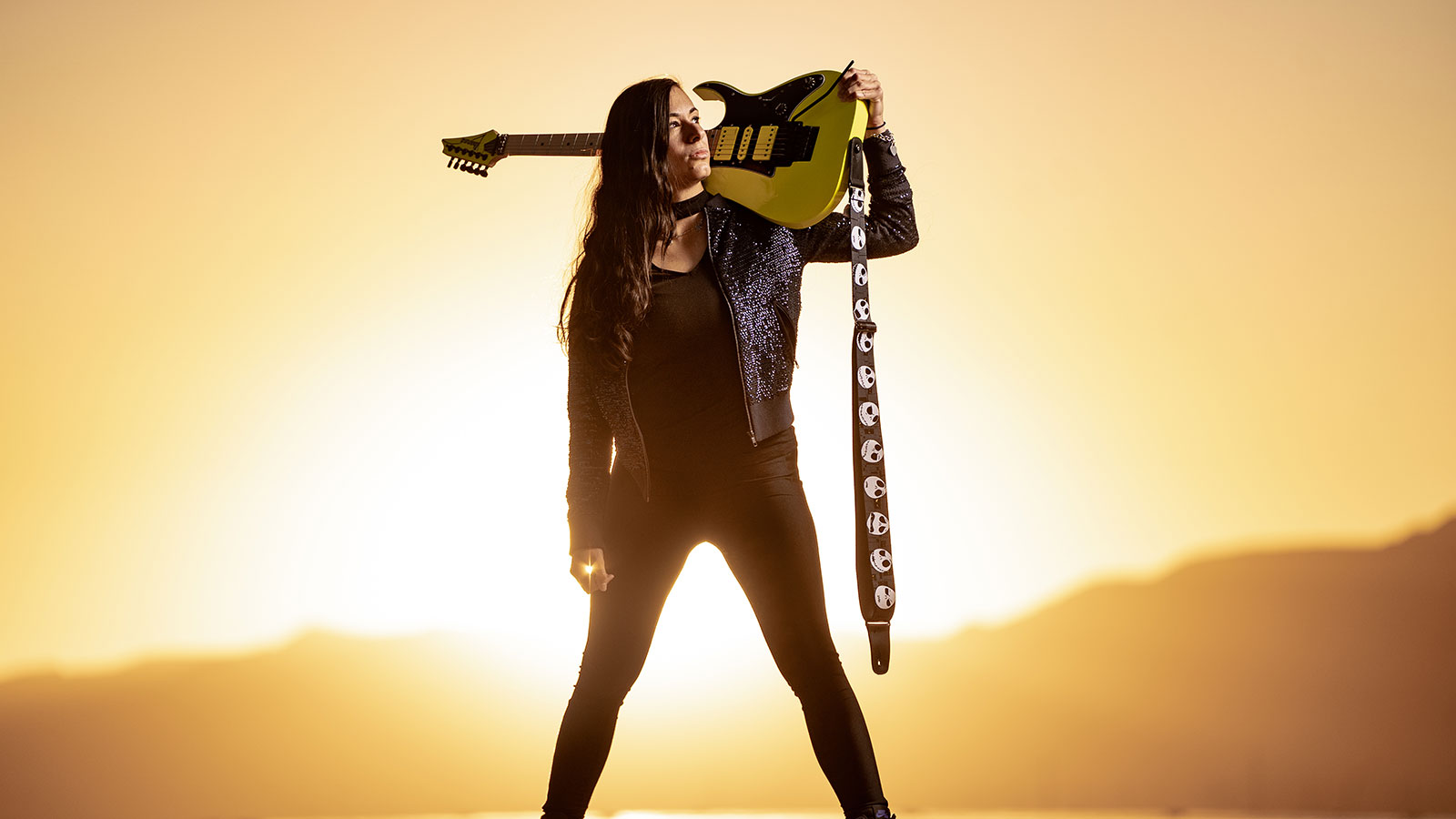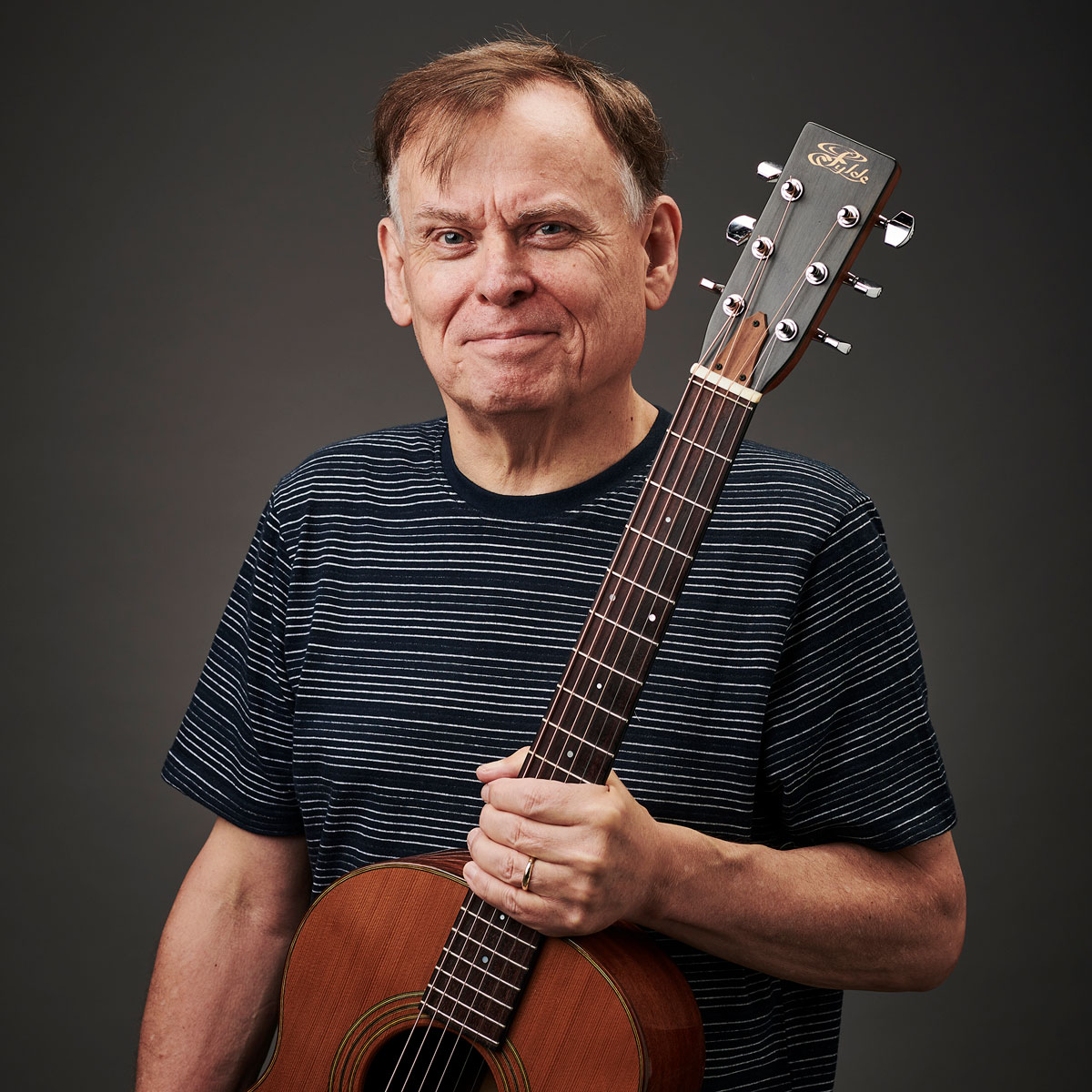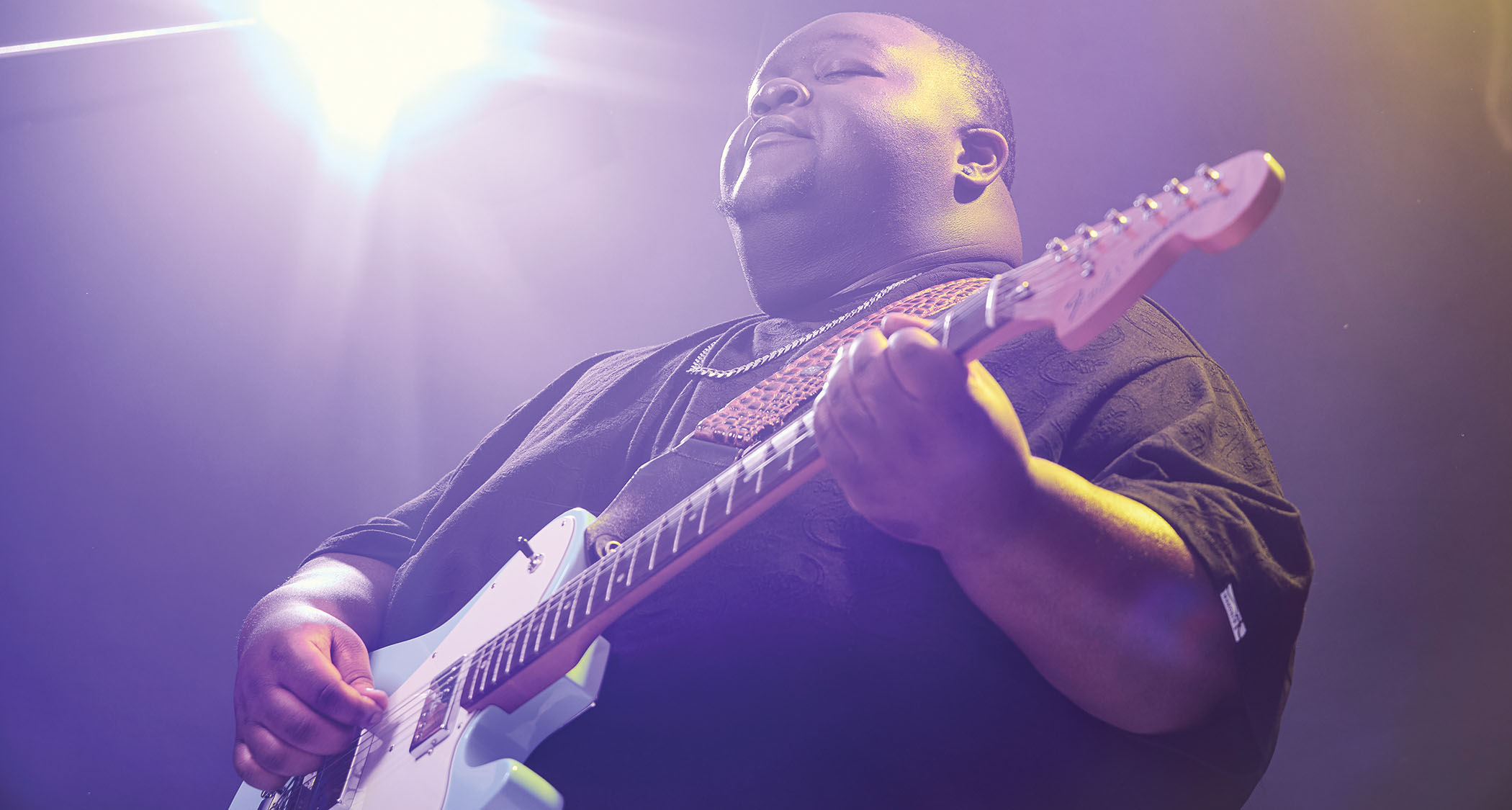Nili Brosh: “For me, the playability is big... I don’t think anybody’s wish is to feel like the guitar is fighting them and everything is harder to play”
The shred phenom talks gear philosophy, greatest hits and misses, explains the benefits of the high-performance six-string – and how to get the weird sounds Danny Elfman likes

All the latest guitar news, interviews, lessons, reviews, deals and more, direct to your inbox!
You are now subscribed
Your newsletter sign-up was successful
Nili Brosh has played with Cirque du Soleil and Danny Elfman, and toured with the likes of Paul Gilbert, Andy Timmons and Guthrie Govan – and when asked about her greatest gear finds, regrets, and buying tips, well, she demonstrates a fondness for sparkly Ibanez electric guitars .
Their finish is important. But it's the performance Brosh is looking for. As she explains here, you don't want the guitar to fight back too much.
What was the first serious guitar you bought with your own money?
“That would be a Charvel Model 4 that I bought on eBay in 2003. I think it was probably $350, or something like that, and it was all the money that I could manage to save at that point. It was purple with sparkles that you see when you look really close up. In some lights it looked brown and in some lights dark purple.
“I was in high school, I had friends in school that I’d played with, but it was still in my very early days of learning to play guitar. I was starting to get into the instrumental guys and a lot of the Shrapnel players and I loved hair metal at the time. Anything that had heavy, driven, distorted guitar caught my attention and made me want to tackle it and figure out what it was all about.”
What was the last guitar you bought and why?
“Would it be weird if it was only a year after the one we just talked about? I got a BC Rich ST-III, also from eBay, which was a green and yellow crackle finish. After that, in my later teenage years, I started my career in endorsements, I guess. So I think that was the last time that I actually bought a guitar.
All the latest guitar news, interviews, lessons, reviews, deals and more, direct to your inbox!
“Right now, I’ve been playing guitars that are kind of from the same realm, the Ibanez Genesis Collection reissue of the RG550. That’s my beloved yellow guitar that made me want to be an Ibanez artist. When they reissued it, I was all about it: ‘Okay, now’s the time, I have to have one!’”
What’s the most incredible find or bargain you’ve ever had when buying gear?
“Oh, man, that’s a good question. I’m sure there have been times. But I think, for lack of a better story, I’ve had musician friends that have had to move across the country or across the world or whatever, and they’re getting rid of stuff that they couldn’t move with and have given me a really good deal as a friend.
“I’m not a huge gear nerd when it comes to just owning stuff. So it’s not like I’ve really been in the habit of looking for great deals or anything. I kind of go based on, ‘What do I need at the moment?’”
Have you ever sold a guitar that you now intensely regret letting go?
“Probably that Charvel Model 4. I sold it to a fan and so I feel like it went to a good home. I kind of wish I had that piece of my own history. But I guess going back to the gear thing, the other side of it is I haven’t gotten rid of that much. Maybe that’s why I’m whining about it, you know, maybe I just need to get rid of more.”
What’s the strongest case of buyer’s remorse you’ve ever had?
“Um, it wasn’t the piece of gear itself, it was more the timing of when I bought it because I bought a microphone that I really liked. I knew it was something that I needed and wanted and all that stuff, but I spent a good amount of money on it. And the very next year it just wasn’t that pricey any more. I remember seeing that and just being like, ‘I could have gotten two or three…’ But I don’t feel like I’ve regretted things that I really intentionally went for.”
What’s your best guitar-buying tip?
“For me, the playability is big, you know, it has to feel a certain way. And my fingers need to be able to move in a certain way. Obviously, it needs to be a solid instrument that can maintain tuning and intonation well. I like my setup a certain way, a certain tension, and I’ve also become partial to certain neck sizes and types.
“The best thing you can do is ask yourself what you’re trying to accomplish with that instrument. What are you trying to play or what are you hoping to feel like? I don’t think anybody’s wish is to feel like the guitar is fighting them and everything is harder to play. You want to find an instrument that makes it easier and more comfortable [to play]. I think the more you know about what you’re going for, the easier it’s going to be to find that instrument.”
If forced to make a choice, would you rather buy a really good guitar and a cheaper guitar amp or a cheap guitar and a really top-notch amp?
“I think I’d rather choose the guitar because it really does start with your fingers. And if you have an instrument that makes it easier for you to do what you do with your hands, then I feel like it’s easier to get over the hurdle of the amp, versus the other way around. An instrument that’s really, really difficult to play, or won’t stay in tune or whatever, will not sound good, no matter how nice the amp is.”
If you could use only humbuckers or single coils for the rest of your career, which would you choose and why?
“It would probably be humbuckers. Only because if I think about what my guitar playing role ends up being, and most of the things that I do, I can get away with playing more of it through humbuckers than singles.”
Nili's go-to rig
“Other than the guitars I’ve mentioned, I have a few seven-strings that I used on some of my older stuff. I have an RG1527 and an RG2727, which is the dark grey Japan-only model. Then I’ve been using Mesa/Boogies for a little while now; I’m using the Triple Crown 100-watt head with a 2x12 cab.
“My ’board is usually pretty simple as I’m not super heavy on effects. I like amp tones and basic reverbs and delays, but it mostly depends on the gig. Recently, I’ve had to do more weird sounds and stuff like that for Danny Elfman, so I have a couple of pedals that were specific for that, like the Strymon Mobius – that definitely colours your sound entirely in a lot of ways. It’s their modulation effects that really, really bastardise the signal. I have the DigiTech FreqOut, which, again, is a similar thing, to create harmonics in different ways and stuff like that.
“I have a tuner, a volume pedal and then I have the Xotic Effects EP Booster, which is my always-on making-the-tone-creamier kind of pedal, but it’s a very simple rig. I’m very much like ‘If it ain’t broke, don’t fix it, go buy what you need…’”
- Spectrum is out now on Hostile City.
With over 30 years’ experience writing for guitar magazines, including at one time occupying the role of editor for Guitarist and Guitar Techniques, David is also the best-selling author of a number of guitar books for Sanctuary Publishing, Music Sales, Mel Bay and Hal Leonard. As a player he has performed with blues sax legend Dick Heckstall-Smith, played rock ’n’ roll in Marty Wilde’s band, duetted with Martin Taylor and taken part in charity gigs backing Gary Moore, Bernie Marsden and Robbie McIntosh, among others. An avid composer of acoustic guitar instrumentals, he has released two acclaimed albums, Nocturnal and Arboretum.

